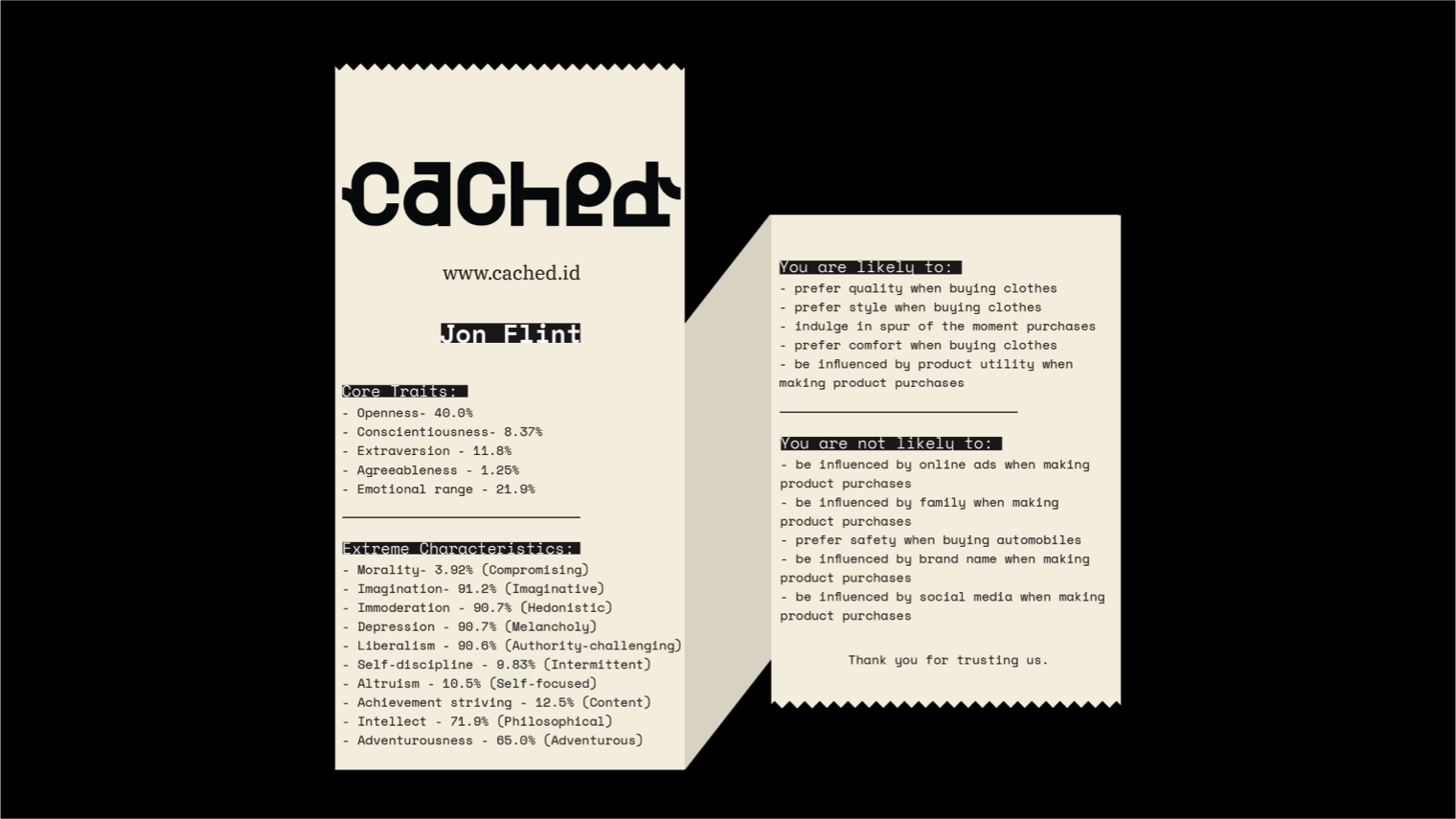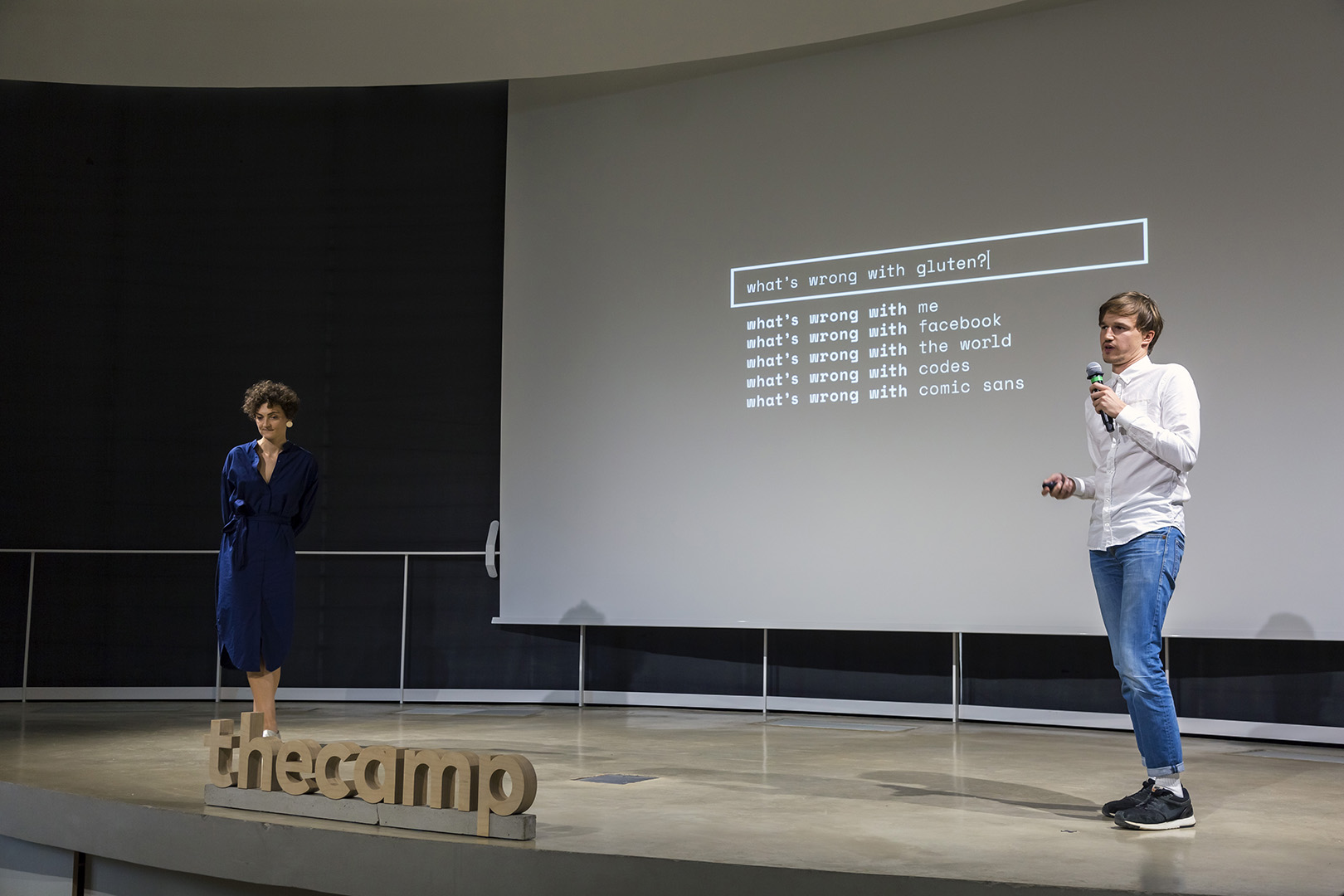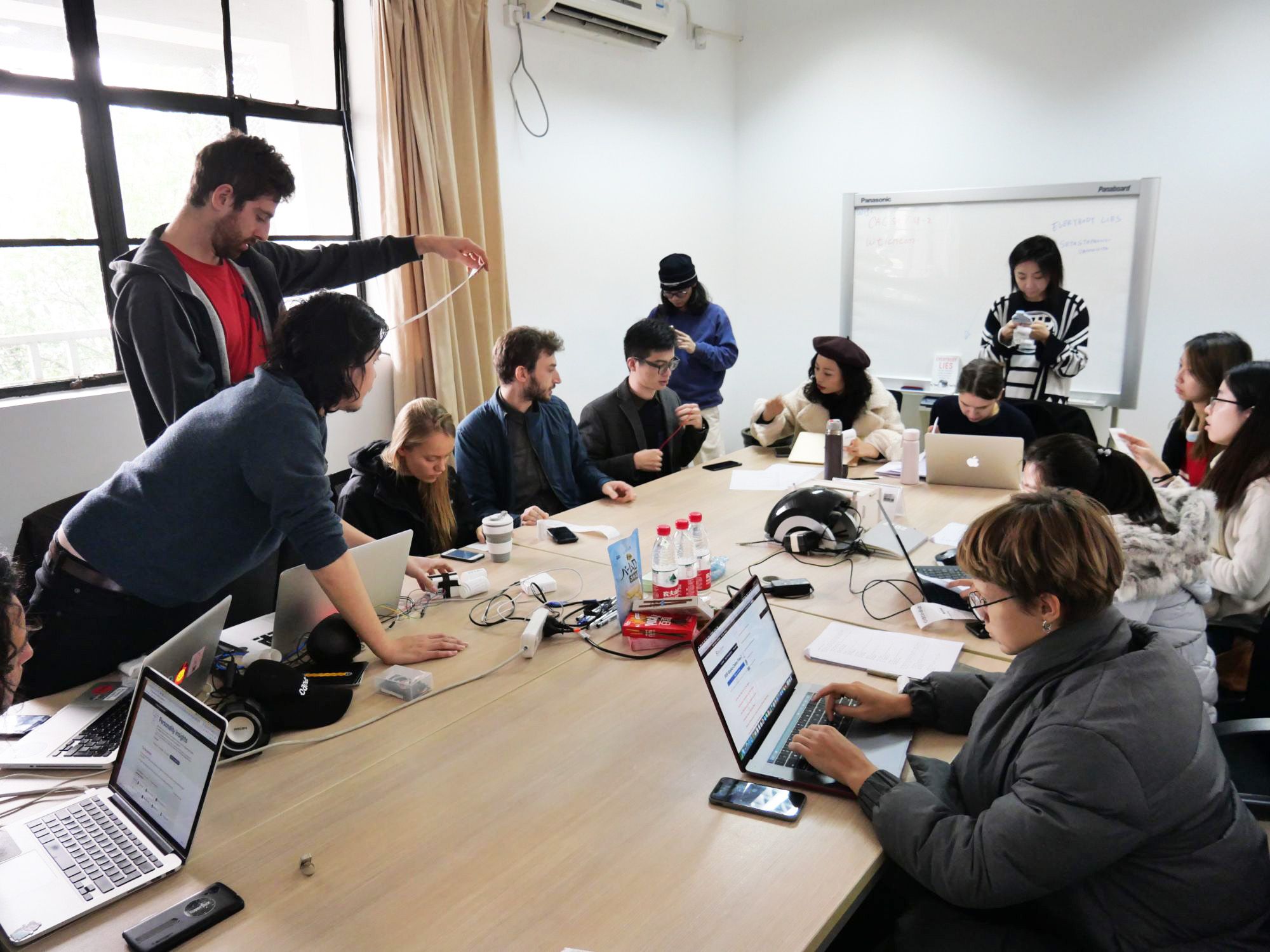
Cached engages with the repercussions of our individual online presence. Our online personality is cached, used to create a digital model of each of us to learn as much as possible. The Cached experience gives you a glimpse at how algorithms have learned to view us and the assumptions they make.
The Cached experience takes a physical approach to personal digital data, engaging with the repercussions of our individual online presence. The Cached experience will give you a glimpse at how computers have learned to view us and the assumptions they make.
Once a visitor logs in on a tablet with their Facebook or Twitter profile, a mirror activates. The mirror uses audiovisual storytelling to play a personalised experience. This explains how your actions online are perceived by algorithms. Our experience is powered by the IBM Watson psychometric algorithm, it analysis all the text found on your Facebook or Twitter posts. The words you use, the way you write, even the tone all contribute to the generation of a psychometric profile.
Throughout the experience you learn that this algorithm and many like it, is also used to create a detailed profile of different users. The reason for this is so that advertisers or other entities can better micro target you.

At the end of the experience the mirror prints out a receipt with a summary of the visitors analysis. This receipt is the only record of their data, since all personal data gets deleted. It is up to the visitor to decide what they do with it. Cached is an experience which allows oneself to think critically, about the version of themselves which exists online.
With modern technology becoming more and more complex. Our collective aims to design poignant experiences understood by wide audiences. Our
interests examine data, algorithmic complexity, and obscure infrastructure, especially focusing on how these affect the individual. Since our formation at the Hive. We have gone on to lead workshops, talks and present Cached globally.
‘Intangible—Tangible’ maps various algorithmic and data collection processes, underlying the fundamental functionality of social media networks. From facial recognition integration, to metadata and psychometric analysis, the presentation stresses how algorithms are moving beyond quantitative data in an attempt to make more holistic assumptions about the user.
By providing various examples of how data can be captured in everyday life and deployed for analytical and marketing purposes, the talk outlines the urgency of further enhancing individual and communal data literacy. The final part of the presentation describes the creative approach and values of the Cached Collective, with particular focus on the Cached experience and making complex issues around data tangible.
The session concludes with an informal Q&A with the audience.

When we say “digital self,” we are talking about the person the algorithm thinks you are. This approximation is constructed through an analysis of the aggregate of all of your content and behaviors online. Your “reflection” is cached and used to mediate your online interactions, often resulting in echo-chambers and intense online polarization.
This day-long Digital Self Workshop is divided into two parts. Part one explores how the digital self is constructed and how it is used. It involves participants undergoing the Cached experience, with a brief follow-up conversation and questions. Part two is a hands-on workshop where participants design and prototype ideas tackling issues of data collection and digital profiling, using our designed prop cards as triggers. The activity is summarised in a presentation and final discussion.
The scope of the workshop is to further increase individual and group knowledge regarding the current capabilities of social media algorithms, and the importance of personal data and metadata. The practical exercise helps to identify the daily physical encounters with data collection algorithms and engage with them creatively.
